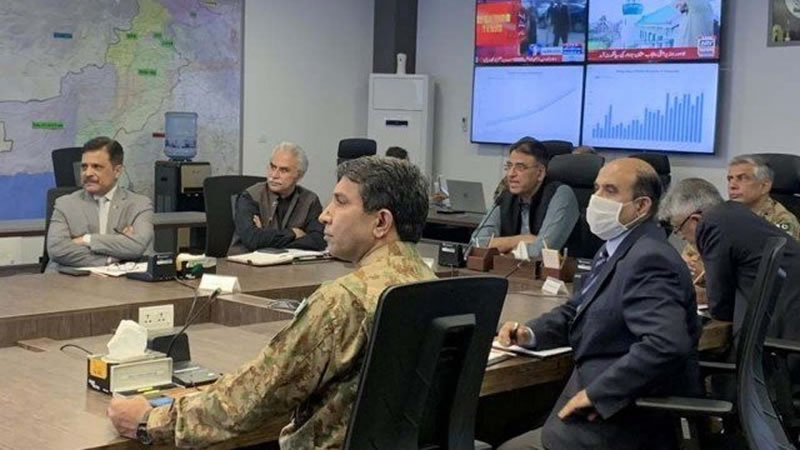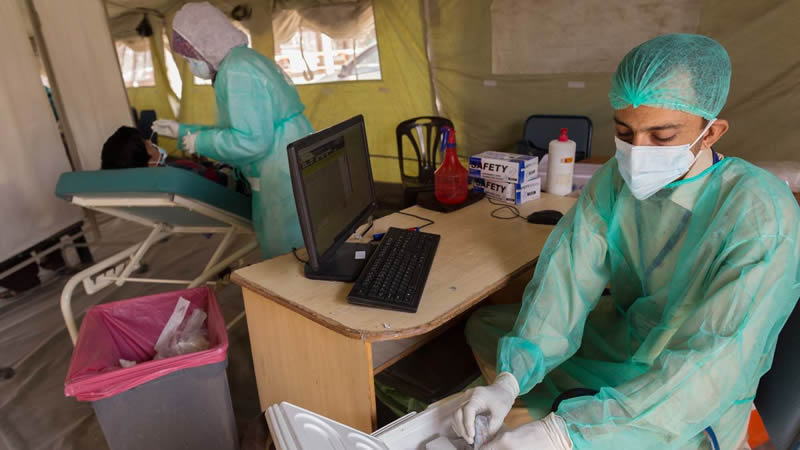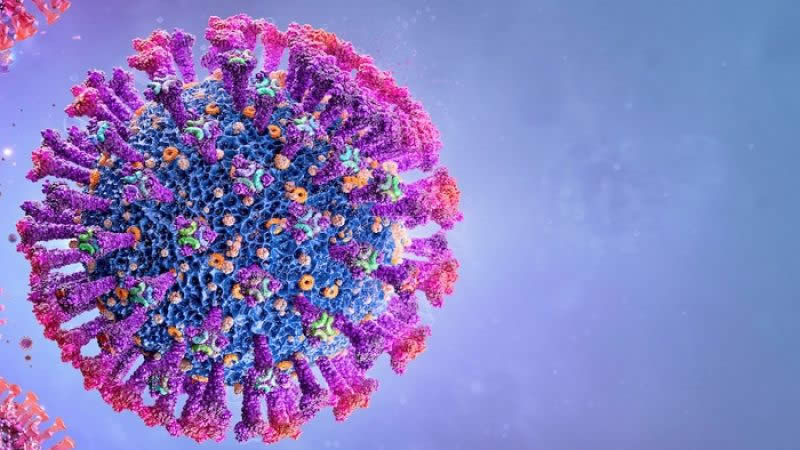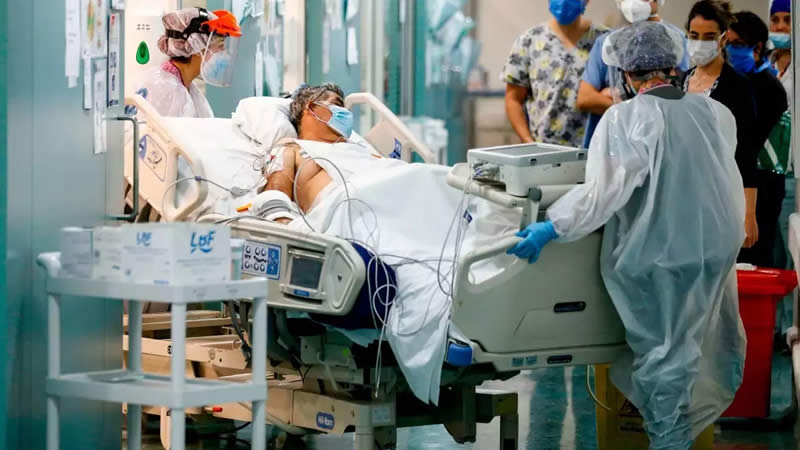Asad Umar asks citizens to ‘change attitude’ to avert June-like situation
Federal Planning and Development Minister Asad Umar on Tuesday warned that the Covid-19 situation in the country could worsen to the level witnessed in June this year – when the coronavirus cases had hit their peak– in just a matter of two weeks if the people continued to ignore guidelines.
“At that time [in June], people could not even find beds in hospitals. We will be pushed back to that level if the standard operating procedures [to prevent the spread of Covid-19] are not followed strictly,” he said at a news conference accompanied by Special Assistant to the PM on Health Dr Faisal Sultan.
The minister was speaking to the media after participating in a meeting of the National Coordination Committee (NCC) chaired by Prime Minister Imran Khan.
“Unless we change our attitude and take precautionary measures, we will be facing a similar situation that we did in June,” he cautioned.
The minister, who is also the head of the National Command and Operations Centre (NCOC) on Covid-19, urged citizens to wear masks, wash hands, and practice physical distancing.
He added that the NCOC had been issuing warnings since last month about the second wave of Covid-19.
Umar said provincial governments would be asked to seek the assistance of religious scholars in convincing the people to follow the guidelines again.
He maintained that clerics had earlier played a key role in bringing the coronavirus situation under control. “However, the people later stopped taking precautionary measures.”
Briefing reporters about the decisions made at the NCC meeting, the minister said the government had decided to close schools and ban indoor dining.
He also urged political parties to comply with the government’s ban on public gatherings.
The Pakistan Democratic Movement (PDM), an 11-party opposition alliance, had held its rally in Peshawar a couple of days ago despite the ban imposed due to the rising Covid-19 cases.
Umar asked political leaders to spread awareness among their activists and supporters.
“As a politician, my politics will drown if I endanger people’s lives and livelihood by holding large gatherings.”
The minister said the National Assembly speaker had called a parliamentary committee meeting on Wednesday (today) to reach on consensus on dealing with the coronavirus situation.
He added that the NCOC had written letters to the leadership of all political parties and they were expected to attend the meeting.
“Hopefully, we will be able to decide how to separate lives and livelihoods from politics.”
Umar maintained that the government prohibited public gatherings to prevent the spread of the virus and there was “no ban on politics in the country”.
He pointed out that the Islamabad High Court had also observed that the decisions being made by the NCC and the NCOC were for the larger interest of the people.
Grim milestone
The second wave of the coronavirus pandemic crossed a grim milestone of 40,000 active cases on Tuesday as nearly 3,000 new cases emerged across the country in the last 24 hours, according to the daily update issued by the NCOC.
The NCOC, the nerve centre of the government unified effort to contain the pandemic spread, said 48 coronavirus patients, including 41 patients admitted to various hospital, died during the same period, bringing the nationwide death toll since the emergence of the disease in February to 7,744.
“The total active Covid-19 cases in Pakistan on Monday were recorded 40,379 as 2,954 more people tested positive for the deadly virus during the last 24 hours. A total 48 corona patients, who were under treatment had lost their lives due to Covid-19 on Monday,” the update read.
It added that no Covid-affected person was on ventilator in Balochistan and Azad Jammu and Kashmir (AJK) and Gilgit-Baltistan (G-B), while 281 ventilators elsewhere in Pakistan were occupied, out of a total of 1,834 allocated for Covid-19 patients.
According to the update, 39,165 tests were conducted across the country on Monday, including 10, 837 in Sindh, 15,678 in Punjab, 4,392 in Khyber Pakhtunkhwa (K-P), 6,804 in Islamabad Capital Territory (ICT), 602 in Balochistan, 313 in G-B, and 539 in AJK.
Since the pandemic outbreak, a total of 379,883 cases were detected, the NCOC said, adding that 331,760 people have recovered from the disease so far across the country making it a significant count.











